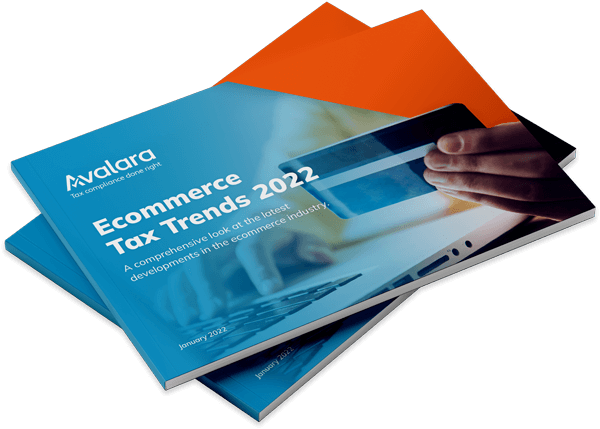
Nigeria introduces new simplified VAT regime on B2C digital services from January 1, 2022
Nigeria’s Minister of Finance, Budget and National Planning, Zainab Ahmed has confirmed in a public presentation on the approved 2022 Budget, that the 2021 Finance Act was signed into law by President Muhammadu Buhari on December 31, 2021. The Minister confirmed that non-resident digital service companies must register and collect VAT from their Nigerian customers and remit to the Nigerian Federal Inland Revenue Service (FIRS).
Non-resident businesses that make taxable supplies of goods and services to Nigerian customers must register for, charge, collect and remit VAT. The obligation applies to non-resident suppliers of digital services from January 1, 2022 and for non-resident suppliers of goods from January 1, 2024. A Circular has been issued by FIRS providing details on a new simplified VAT registration regime for non-resident suppliers. There has been existing legislation attempting to tax supplies of digital services by non-residents, but this had not always been successful and had originally included both B2B/B2C supplies, a withholding mechanism, no threshold, and no streamlined VAT registration process.
The new rules and registration refines the scope of the legislation to tax supplies of non-resident digital service providers who supply Nigerian customers who cannot self-account for VAT i.e. private consumers (B2C).
VAT rate
Digital services will be taxable at the standard rate of 7.5%.
VAT registration threshold
The VAT threshold for non-resident digital services providers is set at $25,000 per annum (or its equivalent in other currencies). Once registered, where a non-resident business has not exceeded the $25,000 VAT threshold for three consecutive years, it can request to be deregistered (and reactivate their registration if they meet the threshold in future). Non-resident businesses that have already registered for VAT in Nigeria should migrate to the new simplified VAT registration.
Scope of digital services
FIRS states the new VAT rules cover services delivered via electronic or digital means. It specifically excludes professional and consultancy services that are not automated (but may be delivered via email), broadcasting services, telecommunication services and services ordinarily exempt from VAT (as per the VAT Act).
The following services are specifically listed as digital services covered by the new rules (but not exhaustive):
- streaming, downloading or access to digital content including movies, music, e-books, magazines, news, applications, games, library services or like services
- online gaming
- online ticketing (excluding international air travels and freight charges)
- online betting services
- online intermediation platform services, including online marketplaces, payment platforms, ride hailing, travel and accommodation booking, rental services or like services
- online advertising services
- subscription based social media platforms including video conferencing applications, instant messaging, chat, dating, image/video sharing or like services
- standardised online education services such as e-learning, webinars or like services
- cloud computing services including cloud storage services
- auction services
- automated online professional and consultancy services
- online stores
- e-library
Rules for determining the place of consumption/taxation
Digital services are considered to be consumed or utilised in Nigeria if the recipient:
- resides in Nigeria
- is a company incorporated in Nigeria
- customer’s IP address is in Nigeria
FIRS would also consider any other commercial evidence suggesting that the supply was consumed or utilised in Nigeria. The guidance also states that if the residence of the customer cannot be determined, FIRS would also consider whether payments for the supplies originate from a bank licensed or incorporated in Nigeria.
VAT return and payment
The VAT return includes reporting of the name of each customer in Nigeria from whom VAT was collected. The VAT payable by the non-resident supplier can be converted to either USD, EUR or GBP only.
Appointment of representation
It does not appear compulsory to appoint a local agent or fiscal representative. However, the guidance confirms that non-resident digital service providers can appoint a representative to act on their behalf in carrying out certain administrative responsibilities. However, they would still be required to register for VAT in their own name and have ultimate responsibility for its obligations.
Deemed platform/marketplace seller rules
Intermediary platforms will be viewed as deemed sellers responsible for registering, invoicing, collecting and remitting VAT on sales completed through their platforms. The marketplace/platform companies will be required to maintain relevant records of transactions with Nigerian customers completed through their platforms. The Circular issued by the Nigerian tax authority also confirms that the underlying supplier is exempted from any further VAT obligations where the platform provider has registered for and accounted for the VAT on the supply.
Digital Services Turnover Tax
The Minister also confirmed that the Finance Act provides for the taxation of ecommerce businesses by non-resident companies at 6% of turnover, she stated that “This provision empowers FIRS to access non-resident firms to tax on Fair and Reasonable Turnover Tax Basis on turnover earned from digital services provided to Nigerian customers”. Digital services include “apps, high-frequency trading, electronic data storage or online advertising”.
Contact Avalara's indirect tax specialists to discuss VAT and GST on digital services and how we can assist with registration and returns.
Stay up to date
Sign up for our free newsletter and stay up to date with the latest tax news.




